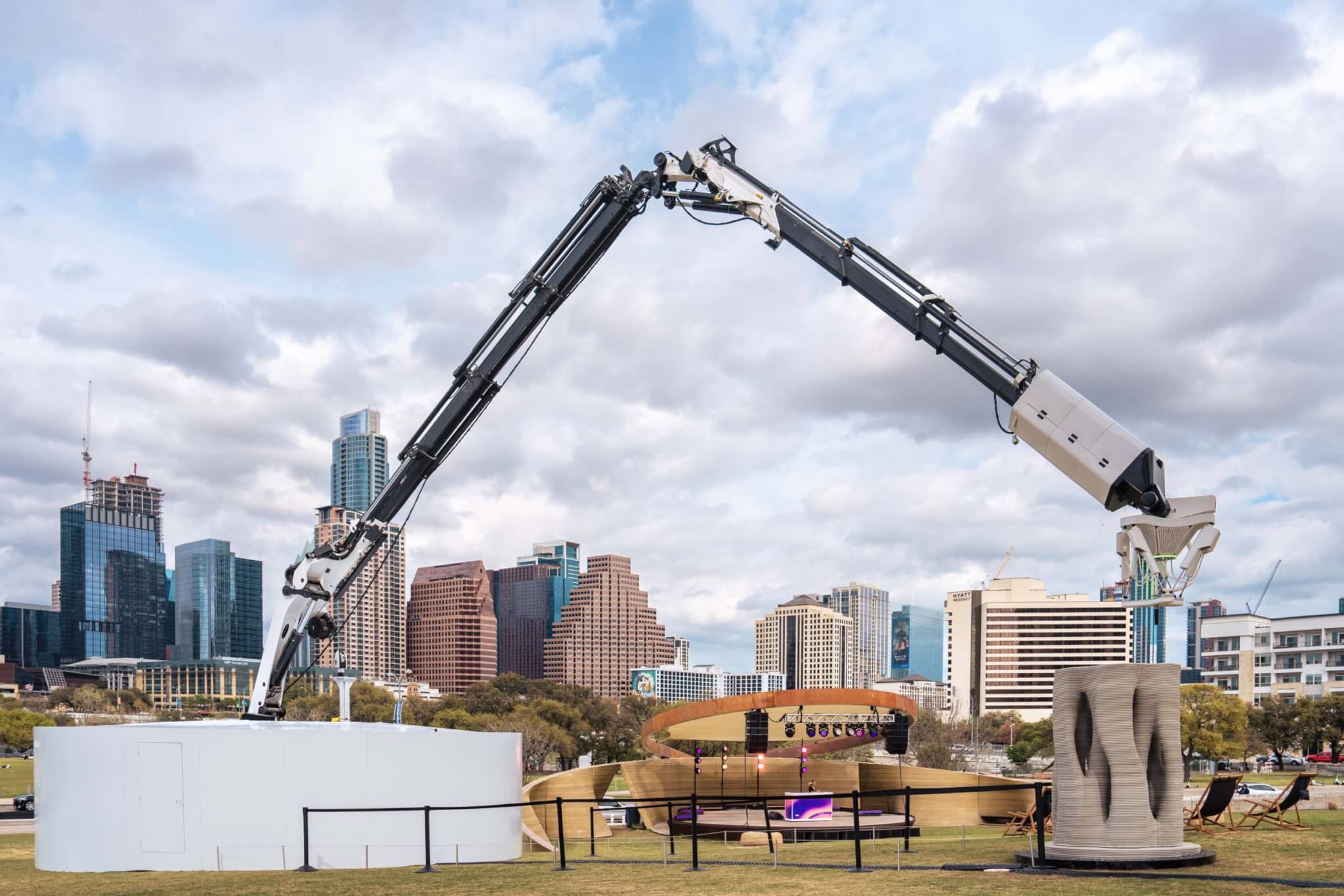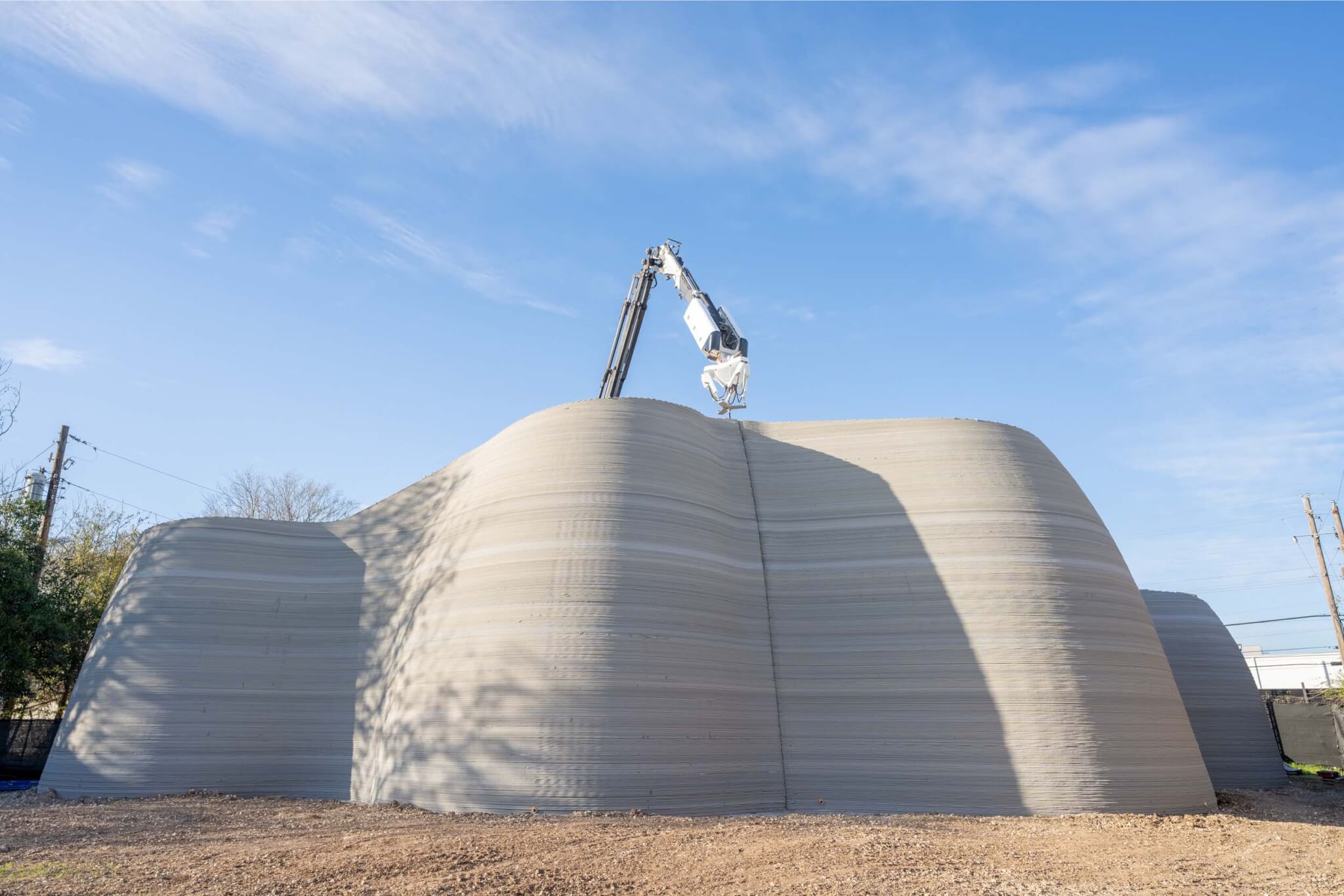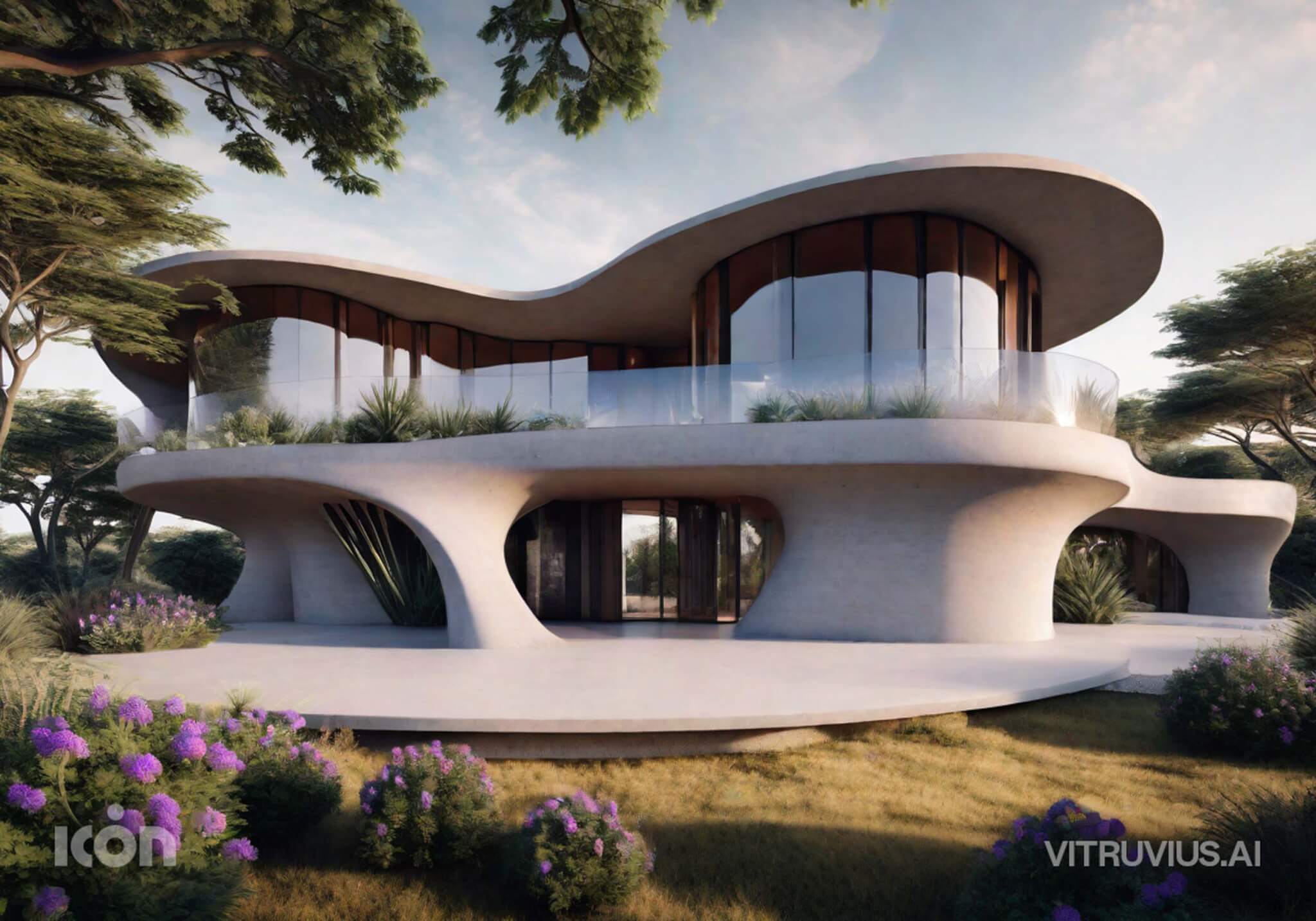ICON, the 3D printing company behind tentative lunar habitats and the world’s largest 3D-printed community, announced an abundance of new initiatives and technological advances at SXSW in Austin, Texas. From a new robotic construction system capable of erecting multistory structures, a low-carbon concrete, and an artificial intelligence platform, it’s fair to say that for ICON the future of the built environment lies in untapped and yet-to-be realized technologies.
“When we launched the company and the first permitted 3D-printed house in 2018 during SXSW, we set out to both decrease the cost and increase the quality of building instead of choosing one or the other,” Jason Ballard, ICON cofounder and CEO, said at this week’s SXSW event. “We didn’t want to just be the best at 3D printing, we wanted to be the best at building, period.”

Since its 2018 debut ICON has made an indelible stamp on the built environment. It has always billed its portfolio of 3D-printed buildings as affordable and efficient. A new digital catalog registers the myriad residential project types ICON has the means to work on.
Single-story dwellings a la the 3D-printed community underway in Georgetown, Texas, and the soon-to-break-ground hotel suites in El Cosmico are just the start. At SXSW ICON touched on its latest robotic construction system, Phoenix, that will allow buildings to be constructed entirely at the hands of machines, from their foundations to roofs. The company said a 27-foot tall demo of this system is installed in Austin.

A selling point for 3D printed designs has always been cutting back on construction waste. To further this commitment to sustainability, ICON has engineered its concrete mix, fed through the printers, to require less carbon. The material CarbonX will be ready as early as April and the team is already at work on a second version that would be even less carbon-reliant.
Another technology teased by ICON at SXSW was the launch of its own AI platform, Vitruvius™.
Since the early days of DALLE and the first forays into Midjourney architects and designers have considered how AI can be leveraged to advance the design and development of built projects. Like other architecture-focused AI programs—such as RoomsGPT or the Venus Williams–backed Palazzo—with Vitruvius, designers can generate their own floor plans, or digitally create interior and exterior renderings at the click of a button. According to ICON, the program will be equipped to address budget constraints and heed feedback, and eventually turn out detailed construction documents, permits, and schedules.

“In the future, I believe nearly all construction will be done by robots, and nearly all construction-related information will be processed and managed by AI systems,” Ballard said. “Going forward, ICON is an AI and robotics company focused on transforming the way we build and accelerating what we believe is a very exciting future.”